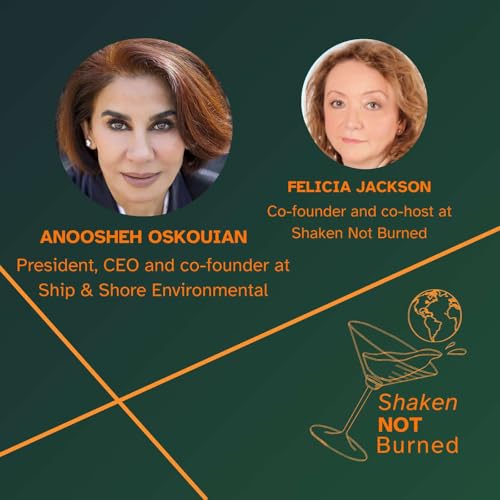Water scarcity is already one of the world’s biggest risks, so why do we treat long showers as inconsequential?
In the UK alone, we send more than two billion litres of shower water down the drain every day. Water scarcity is already one of the world’s top systemic risks, yet most solutions still focus on infrastructure and regulation. This week on Shaken Not Burned, we explore a different lever: human behaviour.
Felicia talks to Carly Hunt, head of strategic partnerships at Showerkap, about why everyday habits matter for water resilience, and how small, well-designed nudges can add up to real, system-level impact.
Showerkap combines smart engineering with behavioural science to gently prompt shorter showers. Instead of shaming or forcing change, the technology fades the temperature when a pre-set time is reached, mirroring the natural signal we already understand when hot water runs out. Behind the scenes, sensors track water, energy, and carbon use in real time.
Early pilots are striking. In a 20-room hotel trial near London, Showerkap helped cut guest water use by up to 58%, saving more than 200,000 litres in just three months, with no guest opting out. Similar trials are now underway at universities, where the focus is on empowering users rather than policing them.
Behavioural change isn’t trivial, especially when it’s designed to feel voluntary, visible, and meaningful. Carly explains how awareness in one context can “spill over” into others, shifting habits at home, at work, and beyond.
The episode also tackles some uncomfortable truths: most people dramatically underestimate how much water they use, showers often consume more water than baths, and water, energy, and carbon are inseparable – wasting one means wasting all three.
At a time when droughts, rising bills, and aging infrastructure are colliding, this conversation asks a quieter but powerful question: what if resilience starts with better design, rather than sacrifice?
If you enjoyed this episode, subscribe to our newsletter and follow us on LinkedIn, TikTok and Instagram – and why not spread the word with your friends and colleagues?
 33 分
33 分 43 分
43 分 44 分
44 分 45 分
45 分 42 分
42 分 2025/11/1343 分
2025/11/1343 分 46 分
46 分 43 分
43 分
